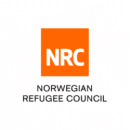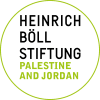Consultancy - Final Evaluation
Job Description
This job listing expired on 2015-12-03
Browse Latest Jobs
when applying to a job online , never give your
credit card or bank account information,
or perform any sort of monetary transaction to a prospective employer. For your privacy and protection:
Latests Jobs By
NRC Gaza
Job Title
Date Posted
Protection Officer (CSP)
Gaza Strip
23, Jun
ICLA Technical Officer
Gaza Strip
15, Jun
ICLA Assistant
Gaza Strip
15, Jun
Livelihoods and Food Security Project Officer
Gaza Strip
12, Mar
Logistics Assistant
Gaza Strip
11, Mar
Shelter Coordinator
Gaza Strip
17, Feb
Safety and Security Officer
Gaza Strip
10, Feb
Monitoring Evaluation & Learning Assistant
Gaza Strip
10, Feb






